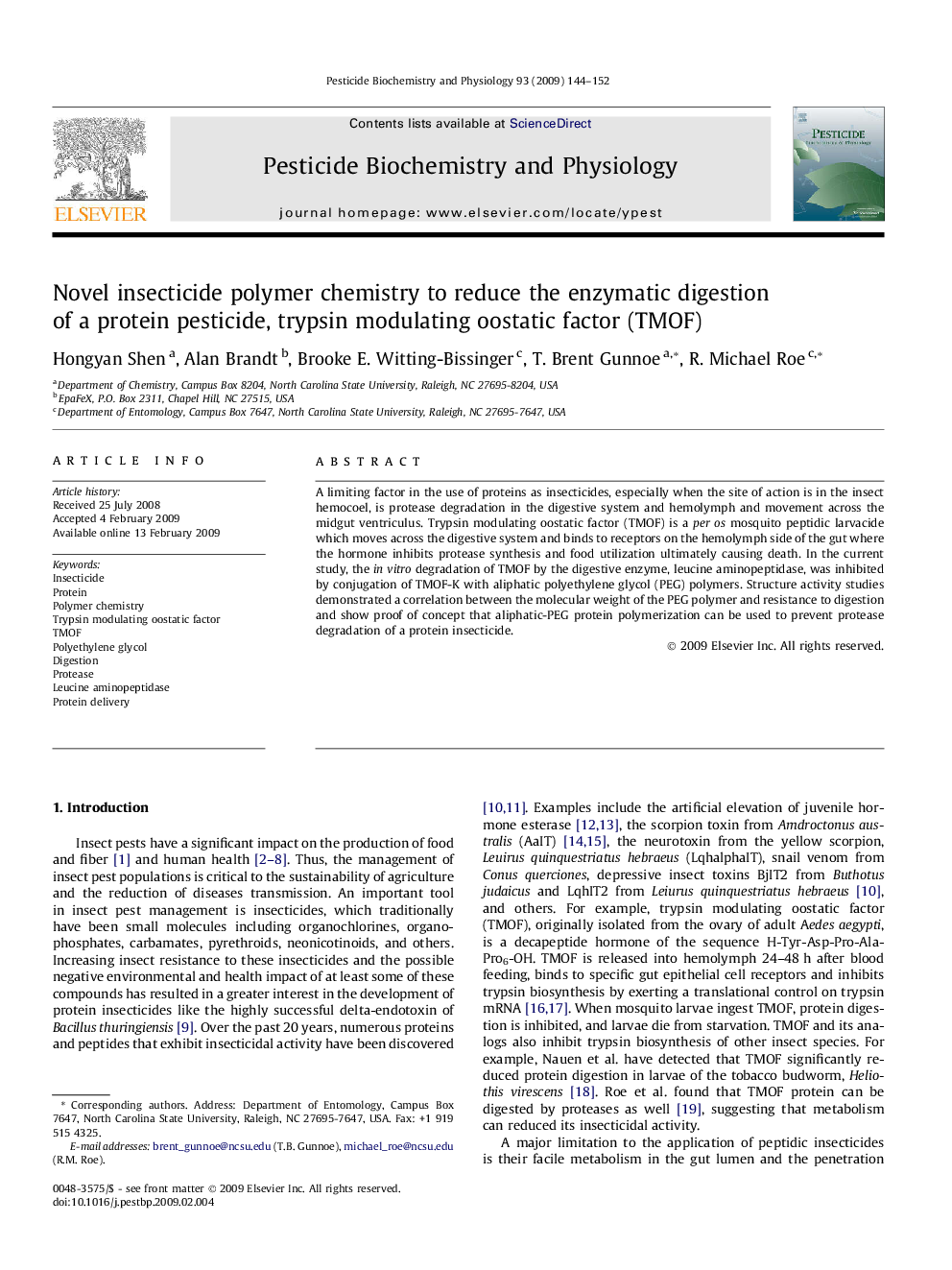| Article ID | Journal | Published Year | Pages | File Type |
|---|---|---|---|---|
| 2009877 | Pesticide Biochemistry and Physiology | 2009 | 9 Pages |
A limiting factor in the use of proteins as insecticides, especially when the site of action is in the insect hemocoel, is protease degradation in the digestive system and hemolymph and movement across the midgut ventriculus. Trypsin modulating oostatic factor (TMOF) is a per os mosquito peptidic larvacide which moves across the digestive system and binds to receptors on the hemolymph side of the gut where the hormone inhibits protease synthesis and food utilization ultimately causing death. In the current study, the in vitro degradation of TMOF by the digestive enzyme, leucine aminopeptidase, was inhibited by conjugation of TMOF-K with aliphatic polyethylene glycol (PEG) polymers. Structure activity studies demonstrated a correlation between the molecular weight of the PEG polymer and resistance to digestion and show proof of concept that aliphatic-PEG protein polymerization can be used to prevent protease degradation of a protein insecticide.
